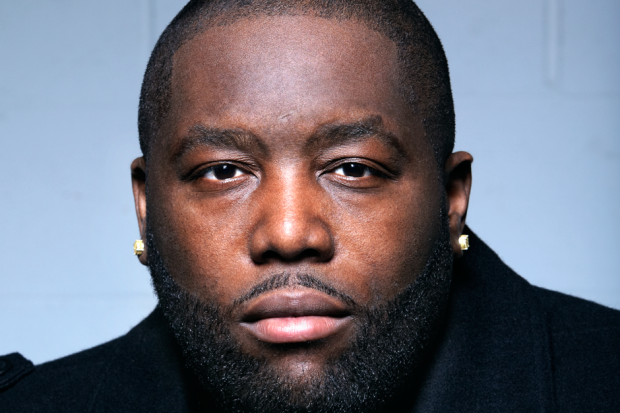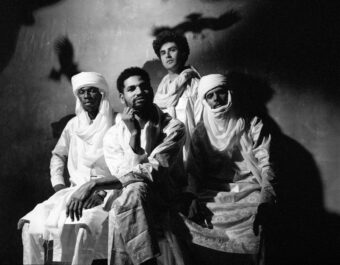Release Date: May 15, 2012
Label: Williams Street Records
R.A.P. Music, the sixth album by from Atlanta firebrand Killer Mike, is a stunning anachronism. Produced to a crisp by the emphatically New York–centric El-P, it is boom and pound from front to back, easily hip-hop’s greatest tribute to 1987 since “99 Problems.” El-P is in strictly Raising Hell mode, all jarring scum-shards and asphalt-melting 808s; Mike is somewhere between Chuck D and Ice-T, full of righteous indignation that only can be bellowed in exasperation: “I don’t trust the church or the government, Democrat, Republican / The Pope or a bishop or them other men.” It’s an impossible rap record that appeals directly to “golden era” purism (i.e., “back when rap was good” for people aged 35 and up), but is still noisy enough to shake off the cobwebs and scare the squares. They really should put it out on cassette.
Informed by these two elder statesmen’s firsthand experience of 1980s sonics and politics, each of R.A.P. Music‘s tracks effortlessly updates a classic idea. You can sense the twosome’s nostalgia for Slick Rick’s “Children’s Story” (“Jo Jo’s Chillin'”), Ice-T’s “6 ‘N the Mornin'” (“Don’t Die”), and BDP’s “Illegal Business” (“Reagan,” which somehow contextualizes Ollie North, Reaganomics, and pre–Rodney King police brutality for a 2012 audience). Thankfully, an album that name-checks Gucci Crew, samples the B-Boys, lyrically borrows from J.J. Fad, and sounds like a Rubin-era Def Jam wet dream works as much more than a retromania swag-off — mainly because Killer Mike doesn’t fit into any convenient hip-hop narrative. One moment, he’ll rage about Sean Bell (the unarmed man gunned down by NYPD officers), then brag about the ménage in his garage, tumble into a Ghostface-style labyrinth, indulge Kanye-style insecurity, and emerge with a heart-stopping, Big K.R.I.T.–style “music is my religion” affirmation. He’s every rapper you love, but twice as loud.
Killer Mike’s effortless ability to wear this many hats on one record is pretty much unmatched in hip-hop right now — though 24-year-old Kendrick Lamar pulls it off quite nicely and may add a “pop star” chapeau to his collection by year’s end. On the other hand, contemporary rap (or at least its edgier corners) actually has been returning to the late-’90s innovations of El-P: Mr. Muthafuckin’ eXquire borrowed El’s Cannibal Ox beats for his Lost in Translation mixtape, while Odd Future’s grimy, indie grind and maddening assonance are pretty much trademark Company Flow, 1996. Yet El’s beats here are, like Killer Mike, without time or place. For opener “Big Beast,” he recreates the JB’s-via-Public Enemy synth drips of 1987, gets haunted by the Vangelis-core astro-gunk of his ’90s output, and still adds enough modern Houstonlanta trunk-rumble that guests like T.I. and Bun B don’t sound out of place.
One profound similarity between the loud-rap class of 1988 (which this album nods to) and the chill-rap class of 2012 (which this album runs in opposition to) is that they’re both among the genre’s most diverse communities of any era — the former because the music industry hadn’t yet enforced divisions like “pop” and “gangsta” and “conscious,” the latter because your iPod Shuffle was basically built to destroy those divisions. A child of the ’80s and a student of the Internet, Killer Mike is as exciting and wildly unclassifiable as hip-hop gets: New York noise and country shit, nods to when rap was punk and crunk was pop, Ice Cube before he needed hooks, David Banner before he needed to whisper, and Willie D before he needed anybody.





